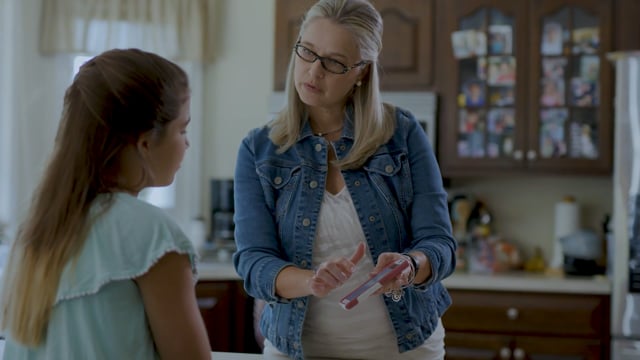Genital Warts (HPV)
What Are Genital Warts?
Genital warts are warts that are on or near the vagina or penis (the genitals).
What Causes Genital Warts?
Genital warts are usually a sexually transmitted disease (STD). They're caused by HPV (human papillomavirus). There are many different strains of HPV. Some can cause genital warts, while others can lead to cervical cancer and other types of cancer.
-

Understanding the HPV Vaccine
Get the facts about the HPV vaccine and how it can protect your child from this infection – and some types of cancer – for years to come.
What Are STDs?
STDs (also called sexually transmitted infections or STIs) are infections that spread through sex (vaginal, oral, or anal), or close sexual contact.
What Are the Signs & Symptoms of Genital Warts?
Many people infected with HPV never get warts. If warts do develop, they usually come within a few months. But sometimes, they show up years later.
The warts can be on or near:
Genital warts can be raised or flat, small or large. Sometimes they're grouped together in a cauliflower-like shape. Some warts can be so small and flat that they're not noticed right away.
Most of the time, genital warts are painless. Some people, though, may have itching, bleeding, burning, or pain.
How Do People Get Genital Warts?
The HPV that causes genital warts usually spreads through vaginal, oral, or anal sex or close sexual contact with the genital area. Even if there are no warts, HPV might still be active in the genital area and can spread to others.
It is not always possible for people to know when they got infected with HPV. That's because:
- the virus can be in the body for months to years before warts develop
- they might have had warts before that weren't noticed
How Are Genital Warts Diagnosed?
Health care providers usually can diagnose genital warts by looking at them. Sometimes, doctors take a small sample of the wart to send to a lab for testing. This usually isn't painful.
How Are Genital Warts Treated?
Treatments to remove genital warts include:
- medicines put on or into the warts
- lasers, cold, or heat put on the warts
- surgery
Sometimes, warts come back after treatment. This is because the treatments can't get rid of all of the HPV in the body.
How Long Do Genital Warts Last?
How long genital warts last can vary from person to person. Sometimes, the immune system clears the warts within a few months. But even if the warts go away, the HPV might still be active in the body. So the warts can come back. Usually within 2 years, the warts and the HPV are gone from the body.
When Is Someone With Genital Warts No Longer Contagious?
People with genital warts definitely can spread HPV. But even after the warts are gone, HPV might still be active in the body. That means it can spread to someone else through sex or close sexual contact and cause warts in that person. It's hard to know when people are no longer contagious, because there's no blood test that looks for HPV.
Most of the time, HPV is gone within 2 years of when someone was infected.
Can Genital Warts Be Prevented?
Genital warts and other types of HPV can be prevented by the HPV vaccine, which is recommended for girls and boys 11–12 years old (though kids as young as 9 also can get it) and for older kids who aren't yet vaccinated. Older teens and adults also can get the vaccine (up to age 45).
Teens or young adults who didn't start or complete the series of shots can get it up to age 45. (It is recommended up to age 26. After that, a person can decide with their doctor if it’s a good idea for them.)
Even if someone already has had one type of HPV infection, the HPV vaccine can protect against other types of HPV.
HPV almost always spreads through sex. So the best way to prevent it is to not have sex (vaginal, oral, or anal). If someone does decide to have sex, using a condom every time for sex (vaginal, oral, anal) helps prevent HPV infection and other STDs. But condoms can't always prevent HPV infection because they don't cover all areas where HPV can live.
Should Sexual Partners Be Told About Genital Warts?
Someone diagnosed with genital warts should have an honest conversation with sexual partners. Partners need to be seen by a health care provider who can check for genital warts and do screenings for other STDs.
If the couple plan to continue having sex, both people need to understand that a condom will help lower the risk of spreading genital warts/HPV but can't completely prevent it.
What Else Should I Know?
Someone diagnosed with genital warts should:
- Know that HPV can spread to partners during sex, even if there are no warts.
- Tell any sexual partners about the warts before having sex.
- Know to use a condom every time they have sex (vaginal, oral, or anal).
- Get tested for other STDs as recommended by their health care provider.
- Gets all doses of the HPV vaccine, if they haven't already.


